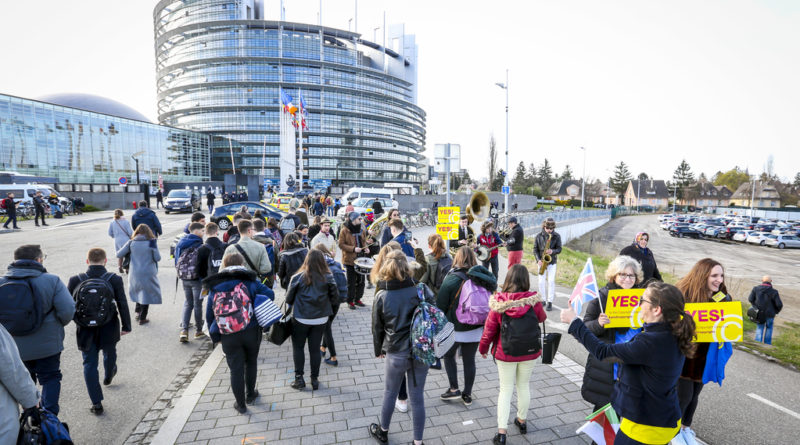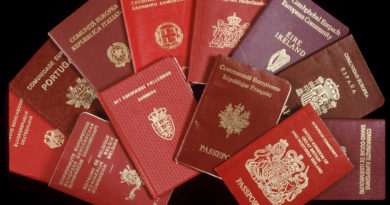40,000 GBP raised in one day to sue UK government in first large scale legal case about EU elections
About 40,000 GBP were raised in 24 hours to support a legal action against the British government over problems that prevented EU and British citizens to vote in the European parliament elections.
Citizens’ rights groups the3million and British in Europe launched on Saturday a crowdfunding campaign to support the case, in what could become the first large scale legal action regarding the right to vote in the EU elections.
Although there are no specific figures yet, it is believed that thousands of EU nationals in the UK and British residents abroad were prevented from voting on May 23 due to a number of administrative issues.
The two groups are exploring the options for a legal challenge that could seek a judicial review “to expose the discrimination in all its forms”. They may also seek compensation for those affected, for unequal treatment, emotional distress and out of pocket expenses.
The crowdfunder had a target of 20,000 GBP for the initial investigation, but by Sunday afternoon it had raised 40,000 GBP from more than 1,500 people, each donating between 5 and 200 GBP.
If the case goes ahead, the group will need over 100,000 GBP to pay lawyers, who will support with reduced rates, and cover the risk of paying others’ legal fees. The legal team includes Dinah Rose QC from Blackstone Chambers, barrister Anneli Howard from Monckton Chambers and John Halford of Bindmans LLP.
“The right to vote is the foundation for all citizenship rights. Last Thursday saw a large scale, systematic, openly discriminatory denial of that right. The case we plan to bring will show that this is not something the law will tolerate and that there must be accountability and consequences,” said John Halford.
#DeniedMyVote
Under the EU Treaty and the EU Charter of Fundamental Rights, every citizen of the European Union residing in another EU member state has the right to vote and stand as a candidate in the EU elections in that state.
As voting twice is illegal, however, EU nationals in the UK had to send a form to the electoral authorities declaring that they would not vote in their country of birth.
But some people were not aware of the form, others sent it as required but it was not processed, others were just turned away from polling stations by mistake. On Thursday, social media were inundated by personal stories and the hashtag #DeniedMyVote was trending in some British cities. Testimonies are still being collected on the3million website.
As for British citizens abroad, when the UK government announced the participation in the EU elections, the deadline to register and vote locally had already passed in many EU countries. This prevented the participation of Britons who cannot vote in the UK because they have lived abroad for more than 15 years.
A British resident in France even brought a case to the Council of State (Conseil d’État), the highest administrative court in the country. She argued that, as the UK announced the vote after the deadline to register locally, France should have granted a derogation with a new deadline for British nationals. The case was not successful.
Among UK citizens abroad who could register for a postal vote, several also complained that ballot papers arrived too late or not at all.
“Fewer than 40% of UK citizens abroad can actually vote in the UK and administrative problems and cuts to resources have reduced this number even further,” said Jane Golding, co-chair of British in Europe.
“Our voting rights matter, they are part of our fundamental status as citizens and part of our legal and constitutional heritage, protected by EU law,” said the3million co-founder Nicolas Hatton.
The groups called the events “the largest case of discrimination since the UK decided to leave the EU”. They said the events show “a systematic failure of the government, the Electoral Commission and local Councils.”
The Electoral Commission responded that the form required from EU nationals was meant to “transfer their right to vote” and “the very short notice from the government of the UK’s participation in these elections” impacted the process. The Commission also argued that “all eligible EU citizens have the right to vote in the EU elections in their home member state.”
“According to the UK Electoral Commission voting in one’s country of residence rather than back home is the exception rather than the rule, so that a transfer of voting rights has to be accomplished, which is more than just requiring guarantees against double voting,” commented Tony Venables, founder of the ECIT Foundation on EU citizenship in Brussels.
“I think this goes against the spirit of EU law, which encourages on the contrary voting in one’s country of residence,” he said.
Largest legal case
Over the years, there have been other legal cases on the participation in the EU elections, for example regarding the voting ban for convicted criminals in some countries. But this would be the first large scale legal challenge of such kind.
“The preparation of what is probably the first large scale legal case on EU voting rights is very important,” Tony Venables told Europe Street. “EU citizens have been far too passive about their European political rights which are underused and when they are, fraught with obstacles. The only positive aspect of Brexit has been to lead people not to take European citizenship and rights for granted. Let’s hope action in the UK will lead others to be equally assertive.”
Claudia Delpero © all rights reserved.
Photo: a demonstration outside the European parliament in Strasbourg. Photo by Fred Marvaux © European Union 2019 – Source : EP.




